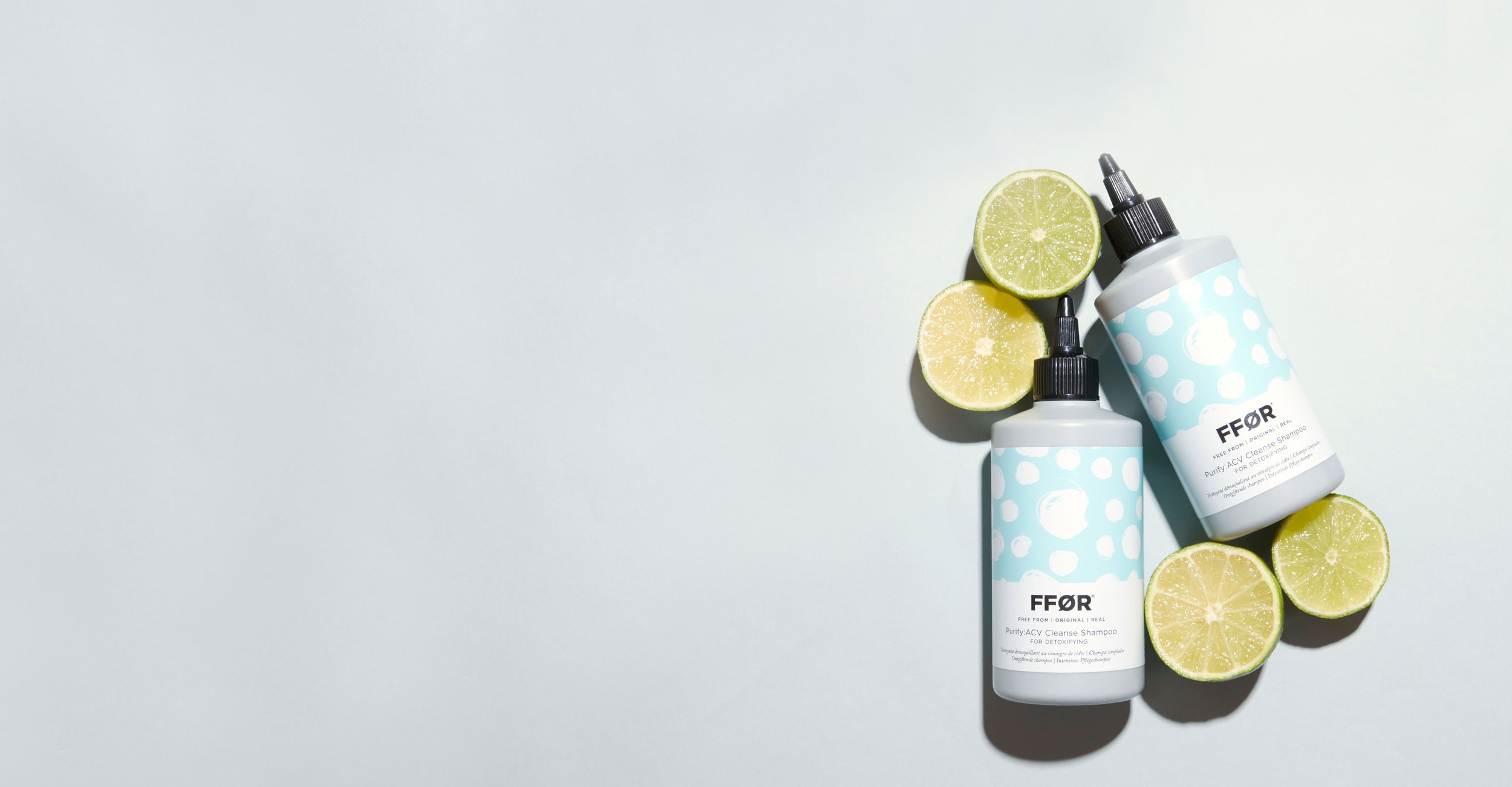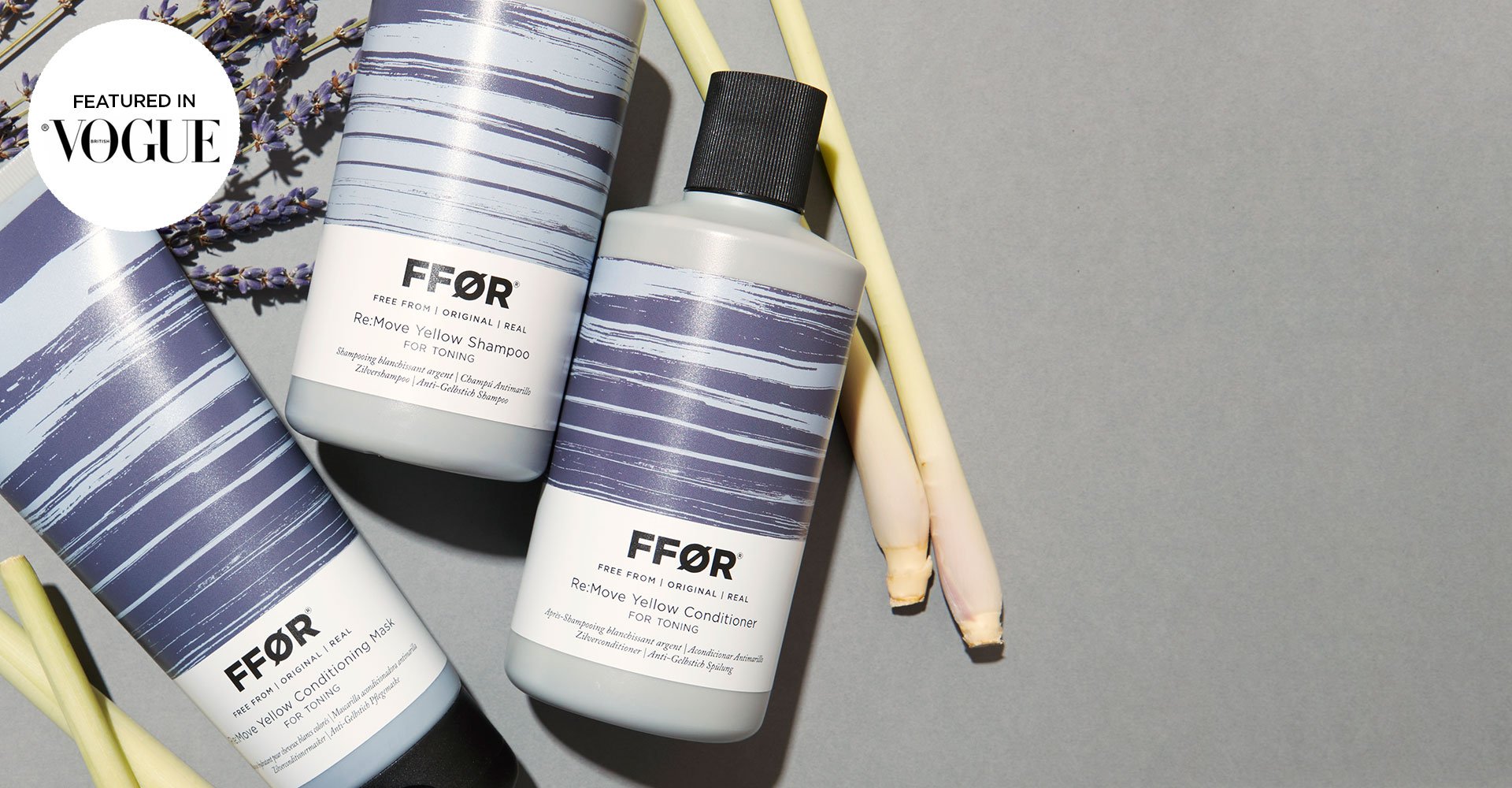Find Out Why FFØR Haircare’s Jo Watt Calls the Recycle My Salon Scheme a “No Brainer”
Sustainability is a hot topic in the hair & beauty industry. From compostable packaging to vegan-friendly products, there are many ways salons can reduce their impact on the environment. But what about the recycling process? In this episode of The Recycling Room, host Marc Carey talks with Jo Watt from FFØR hair colour about sustainability in the hair & beauty supply industry. They discuss the challenges and opportunities of recycling hair colour tubes and foils, and how salons can get started.
[Jo Watt]
My name is Jo Watt, and I'm Marketing Manager for FFØR haircare. We are a 100% Vegan, natural professional hair care brand with a professional colour range also.
[Marc Carey]
So welcome Jo, thank you very much for joining me today. Here to talk, Recycle My Salon but also to hear about the great work that you've been doing in your organisation. So just remind me again, you mentioned off air that a lot of your products are all vegan based. Is that correct? Tell me a little bit about the products.
[JW]
Primarily, on our whole range, we have positioned ourselves as a 100% vegan brand. So, everything we do, first and foremost, we try to ensure that products are 100% vegan; making sure, also, that our ingredients are ethically sourced and that sustainability is at the front of everything that we do. So, whether it's the product sourcing to the materials that we use in our packaging to what we look to achieve and portray as a brand as well. We are very much buying into consciousness and sustainability.
[MC]
It must have been an easy ask for you to get involved in this game then?
[JW]
Pretty much “no questions required”. It's like, yes, this absolutely is something that we would want to get involved in. And it's just great to hear about things like this are happening.
[MC]
Yeah. And in terms of the work you've been doing regarding the brand and developing the products in a sustainable way. Is this something that you had an ambition to do independently or is it coming from pressure from the consumer or from the salons themselves? Or is it industry wide?
[JW]
So, it was an idea that originated slowly, over a period of time and sat in our owner’s head for a number of years, working out exactly what it meant and how it could come to fruition and what it actually looked like. I think, working in industry and seeing the changes from quite early on, kind of sped those thoughts up. Certainly, getting in as a British brand with a great proposition quite early on in the adoption of sustainability and natural products was something that was definitely at the forefront of what we were trying to achieve. So, the brand was conceived in this way. It was never a case of "So we've got a brand and we're going to make it sustainable or natural". It was like this is what we're developing. We're developing a natural brand which is going to be sustainable. It's going to be vegan, it's going to have a focus on the environment, conserving as well as trying to replenish what has been destroyed.
[MC]
That mustn't have been an easy ask that one though either, is it?
[JW]
I don’t think so and that's why it was in thought about maybe six or seven years. It wasn't a quick process. It was: "I've got this idea. How do I make it work in the best way possible? How do I create this brand so that it ticks all these boxes from the outset?"
[MC]
And so linking back to this new scheme, how important is it that we get these accessible schemes out there?
[JW]
I think it is really important, I think sustainability initiatives in industry are needed. I think not a lot of people can necessarily do everything on their own. So having a program like this is a great opportunity for those who are thinking about it, to easily get involved. But if your brand is like ours, that can lives and breathes this kind of thing, it's a no brainer to give support, get involved and help others get involved as well.
[MC]
Were you surprised by the amount of people within the industry that have collaborated that come together for it?
[JW]
Yeah, I think some industries are really good at collaborating and others not so. I think in our industry collaborating, is in the really early stages of that happening quite frequently. So it's nice to see the number of people that have come together for the greater good of the industry.
[MC]
But I would say, I mean, it's not an industry I know particularly well and I'm sure, correct me if I'm wrong, but in terms of professional haircare over the years, it's been kind of I'd say character lead, would you say so, personality lead as well. So does that not then create these elements of silos and a bit of competition? The two things kind of jar in some way sometimes, maybe.
[JW]
I think that the professional industry has some very big players, and you can capitalize on personalities, as you say. I think that if they're going to talk about sustainability and environmentalism they need to really be careful about who those personalities are these days. With the development of digital and social media, every aspect of their lives is scrutinized, down to what brands they eat and do they even have hair extensions. That kind of scrutiny is microscopic, and I think it's been easy for some big players to talk about sustainability quite early on, but whether they're 100% committed to it, within such a big organization, it’s really hard to know sometimes.
[MC]
Yeah, I guess it's always like that, not just in your industry. This is across the board in terms of sustainability. I mean, in terms of my background, I've been waving the green flag for the best part of 30 years. So, it's not a new concept for us, but certainly working in the world of media, they're way behind the curve, particularly in the music industry, as well. Generalising now, have you observed, coming from your ethical and sustainable viewpoint of trying to build something of value, have you observed that greenwash going on?
[JW]
I think there's certain voices that have been more easily heard in recent years, I think people have started to cotton on to what they've been saying more and more. I also think from a sales/retail brand point of view, people have been looking for new USPs to have that platform in the marketplace. Whereas being sustainable maybe wasn't a priority for a lot of people, it has slowly changed, and they've recognised it as a USP that they can pull on and bring to the forefront of what they're doing.
[MC]
And then also I'm hearing in terms of USP and translating that into the UVP (unique value proposition), particularly with new consumers coming through that have got access to the knowledge, as you mentioned, social media or wherever, where it began, you know, going online and find out the questions themselves. So, in general, I think for corporate social responsibility, the days of the “corporates” being able to greenwash their way out of it properly are numbered now.
[JW]
Yeah, I think if a company is going to invest heavily in CSR program, it needs to be top to bottom, upside down, backwards, completely integrated into the company. They can't just do a couple of initiatives that are ticking some boxes, people just see those companies as a tick box exercise, and it's not what that company actually is.
[MC]
Yeah. And I'm just saying from a corporate perspective, you know, if you're a salon owner and you're juggling all of the day to day worries of running a business and looking after your staff and dealing with any changes to the bureaucracy that goes with running a business, something like this scheme gives you an opportunity to actually make a difference. I think that if you start to look at the bigger picture, then you always think how can I, how can we actually make a difference? What can I do at grassroots level to really contribute? And this is the sort of scheme that, I guess, allows them to do that.
[JW]
Yeah, I think for a lot of salons and smaller businesses, no matter what industry, it's every little bit counts. So even the smallest things, to begin with, can be a massive step forward for them. And I think a lot of salons may not even know where to start, and may not be able to dedicate a lot of time to researching that kind of thing. So having a lot of bigger players in their industry come together and offer this easy solution for them is probably a godsend to them. It just solves so many of their issues because particularly, with regards to salon recycling, council recycling doesn't always support them in the way that businesses need and if they are going to find an expert specialist company to do it, it can be outwith their means of financing it themselves as well.
[MC]
And that lack of education as well. Just the kind of it's not naive, but it's kind of misinformed, that certain things can be recycled
[JW]
Google is a great playground for finding the right and wrong information. And even if you try to ask some manufacturers or try and Google the information, for example what the composition is of your products' packaging, it can be really hard to find information about how it's actually made, or how to recycle it and reuse it, I think a lot of companies have probably been quite guarded about this before and they really need that transparency.
[MC]
Yeah, and that's a good point, isn't it? I think authenticity and transparency are going to be the key to success here and that collaborative approach as well. This idea that you can't work in a silo anymore.
[JW]
Absolutely. I think as far as recycling, people generally know that you can recycle plastics and glass, or you can recycle tin cans at home, and that tin cans can be made of many different composites. Some are recyclable. Some aren't. It’s the same with plastic. So, if you're working in industry and your industry is frequently using the same kinds of aluminium tubes or plastics or whatever it may be, you need to make sure that people in your industry know that they can recycle them and they can have this resource to help them do it.
[MC]
So in terms of your involvement today. And again, you said it was a bit of a no brainer for you guys to get involved with this, anyway, but if you had to think again about the value proposition for this scheme, is there anything that jumps to mind?
[JW]
The fact that it's based around recycling aluminium, I think a lot of other schemes are for plastics, other materials, but not specifically for aluminium which can be hard to recycle or find a way to recycle. I think, probably for me, your biggest USP is around that. Also, you're there to support the entire industry. You're not just there working with one particular large company that is employed to do it for them. It's an industry resource.


